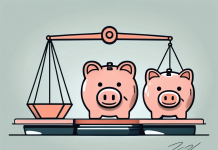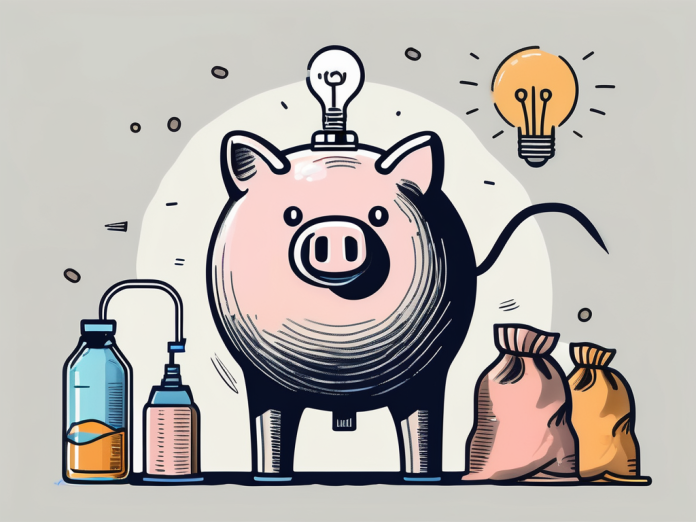Keeping track of your spending and finding ways to save money can make a big difference in your financial well-being. In this article, we will explore some smart ways to save money on everyday expenses. From understanding your spending habits to cutting down on utility bills, we’ve got you covered.
Understanding Your Spending Habits
Before you start saving, it’s important to understand your spending habits. Take some time to analyze where your money is going. This will help you identify areas where you can cut back. It’s also a good idea to set financial goals for yourself, such as saving a certain percentage of your income each month. Understanding your spending patterns can provide valuable insights into your financial behavior and help you make informed decisions about your money management strategies.
Moreover, delving into your spending habits can reveal underlying trends that may be impacting your financial health. By categorizing your expenses into essential and non-essential items, you can pinpoint areas where you may be overspending and find opportunities to reallocate funds towards savings or investments. Additionally, tracking your spending over time can highlight any fluctuations or seasonal patterns, enabling you to plan ahead for future expenses or emergencies.
The Importance of Budgeting
One of the key ways to save money is by creating a budget. A budget allows you to see exactly how much money you have coming in and going out each month. It helps you prioritize your spending and identify areas where you can make cuts. There are many budgeting apps and tools available that can help you keep track of your expenses. By establishing a budget, you gain a clearer picture of your financial situation and can proactively manage your cash flow to achieve your savings goals.
Furthermore, a well-structured budget empowers you to allocate funds towards important financial objectives, such as building an emergency fund, paying off debt, or saving for a major purchase. By monitoring your budget regularly and adjusting it as needed, you can adapt to changing circumstances and stay on track towards achieving financial stability and long-term prosperity.
Identifying Unnecessary Expenses
Another way to save money is by identifying unnecessary expenses. Take a look at your monthly bills and see if there are any services or subscriptions that you can live without. Cutting out cable TV, for example, can save you a significant amount of money each month. Also, consider reducing eating out and investing in a good coffee maker instead of buying expensive takeaway coffees. By scrutinizing your expenditures and distinguishing between essential and discretionary costs, you can streamline your budget and redirect funds towards activities or purchases that align more closely with your financial priorities.
Moreover, evaluating your spending habits can lead to a greater awareness of your consumption patterns and help you cultivate mindful spending behaviors. By consciously assessing the value and necessity of each expense, you can make more informed choices about where to allocate your financial resources, ultimately fostering a more sustainable and balanced approach to managing your money.
Saving on Food and Groceries
Food is one of the biggest expenses for most people, but there are ways to save money without sacrificing your meals.
Meal Planning and Preparation
One effective strategy is meal planning and preparation. By planning your meals in advance, you can create a shopping list and avoid purchasing unnecessary items. Cooking at home also allows you to control portion sizes and save money by preparing meals in bulk.
Smart Shopping Strategies
When it comes to grocery shopping, there are a few smart strategies that can help you save. Start by making a list and sticking to it. Avoid shopping when you’re hungry, as this can lead to impulse buying. Take advantage of coupons, discounts, and sales to get the best deals. Additionally, consider buying generic brands, as they are often cheaper and just as good as name brands.
Cutting Down on Utility Bills
Reducing your utility bills can have a significant impact on your monthly expenses. Here are some tips to help you save:
Energy Efficiency at Home
Lowering your energy consumption not only benefits the environment but also saves you money. Replace traditional light bulbs with energy-efficient ones. Unplug appliances when not in use and invest in power strips that can be turned off to eliminate vampire power drain. Additionally, adjusting your thermostat a few degrees lower in the colder months and higher in the warmer months can result in significant savings.
Water Conservation Techniques
Water is another utility that can quickly add up on your bill. Conserve water by fixing any leaks promptly, taking shorter showers, and only running the dishwasher and washing machine with full loads. Collect rainwater to use for watering plants and consider installing low-flow showerheads and faucets to reduce water usage.
Reducing Transportation Costs
Transportation costs, including gas, maintenance, and parking fees, can take a toll on your budget. Here are some ways to save:
Public Transportation and Carpooling
If possible, take advantage of public transportation or carpooling to reduce your commuting costs. Not only will this save you money, but it will also help reduce your carbon footprint. Additionally, consider walking, biking, or using a scooter for shorter trips.
Maintenance for Fuel Efficiency
Maintaining your vehicle properly can lead to better fuel efficiency and lower maintenance costs in the long run. Keep your tires properly inflated, change your oil regularly, and follow your vehicle’s recommended maintenance schedule. These simple steps can help you save money on gas and prevent costly repairs.
Saving on Entertainment and Leisure
Entertainment and leisure activities are necessary for a balanced life but can also be expensive. Here’s how to enjoy without breaking the bank:
Affordable or Free Activities
Look for affordable or free activities in your community. Many cities offer free concerts, movies in the park, or art exhibitions. Check out your local library for free books, movies, and events. Enjoying nature through hiking or having a picnic in a nearby park is another low-cost option.
Budget-friendly Travel Tips
If you love to travel but want to save money, there are ways to make it more budget-friendly. Look for travel deals, consider traveling during the off-peak season, and be flexible with your dates. Additionally, consider staying in budget accommodation such as hostels or vacation rentals instead of expensive hotels. Plan your meals by exploring local markets and street food rather than always eating out at restaurants.
By implementing these smart ways to save money on everyday expenses, you can take control of your finances and put yourself on the path to financial freedom. Remember, every dollar saved adds up over time, so start making small changes today for a brighter financial future!




























